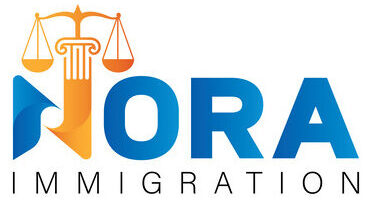If you are planning a career move to the UK via a sponsored work visa, there’s a crucial change you need to know about—and prepare for now.
The UK Home Office has announced a significant increase in the English language requirement for several key work routes. Starting on January 8, 2026, new applicants will need to demonstrate a higher level of English proficiency: Level B2, up from the current Level B1.
Who is Affected by the B1 to B2 Change?
This higher standard applies to all new, first-time applications for the following popular work and talent visas submitted on or after January 8, 2026:
- Skilled Worker Visa: The main route for sponsored employment in the UK.
- High Potential Individual (HPI) Visa: The route for recent graduates of top global universities.
- Scale Up Visa: The route for talented individuals joining fast-growing UK businesses.
Good News for Current Visa Holders: If you are already in the UK on one of these routes (Skilled Worker, HPI, or Scale-up) and are applying for an extension, you will generally not be affected. You will typically still be assessed against the original B1 requirement you met when you first applied.
What Do B1 and B2 Levels Mean?
The English language requirements are assessed using the Common European Framework of Reference for Languages (CEFR) scale. The move from B1 to B2 is a noticeable step up in required proficiency.
| CEFR Level | Proficiency Description | UK Equivalency | What a user can do |
| B1 (Current) | Intermediate | Roughly GCSE level | Handle most basic everyday communication, simple work-related discussions, and routine matters. |
| B2 (New) | Upper-Intermediate | Roughly A-Level equivalent | Understand complex texts, participate in extended discussions with fluency and spontaneity, and write clear, detailed text on a wide range of subjects. |
The intent behind this change, according to the government, is to ensure that economic migrants possess the language skills necessary for stronger workplace communication and to play a more integrated role in British society.
How to Meet the New B2 Requirement
If you are planning to apply on or after January 8, 2026, you will need to prepare to prove B2 proficiency in reading, writing, speaking, and listening.
You can satisfy the requirement in one of the following primary ways:
- Secure English Language Test (SELT): Pass an approved SELT from a Home Office-approved provider (like IELTS for UKVI or Trinity College London). To meet the B2 level, this typically means achieving a minimum score equivalent to IELTS Band 5.5 or higher in all four components.
- Academic Qualification: Hold a degree-level qualification (Bachelor’s, Master’s, or PhD) that was taught in English. If the degree was obtained outside the UK, you will need to apply to Ecctis (the UK National Information Centre) for confirmation that the qualification is equivalent to a UK degree and was taught in English.
- Nationality: Be a national of a majority English-speaking country (such as the USA, Canada, Australia, etc.).
Actionable Steps for Future Applicants
If your application date will be on or after January 8, 2026, you need to begin preparing immediately.
- Start Studying: The difference between B1 and B2 is substantial. Begin practicing with B2-level materials for reading comprehension and listening exercises.
- Book Your Test Early: If you plan to take a SELT, book it well in advance. Passing the test is a strict requirement, and you may need time for a re-take if necessary.
- Gather Academic Evidence: If you are relying on a non-UK degree, start the Ecctis verification process as soon as possible, as this can take time.
This change is part of a broader set of UK immigration reforms aimed at tightening rules and attracting “the brightest and best”. Planning ahead is now more critical than ever to ensure your UK visa application is successful.

